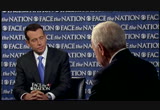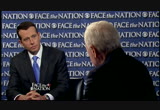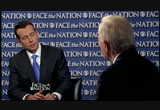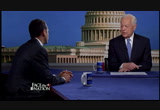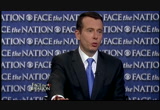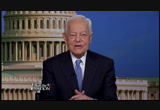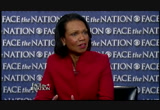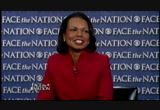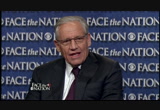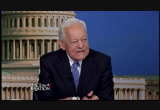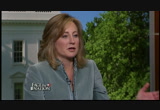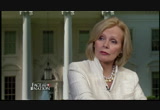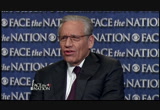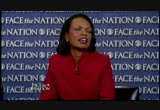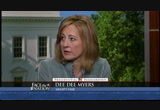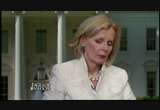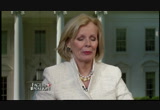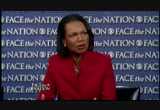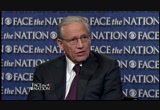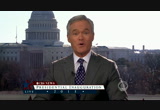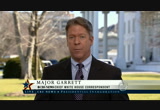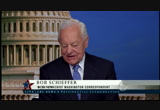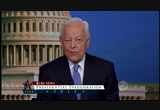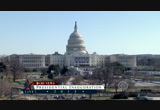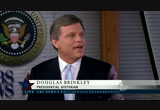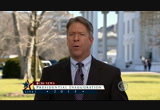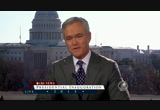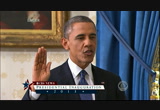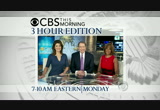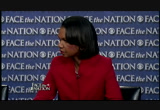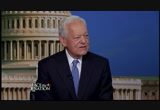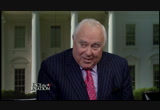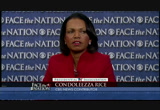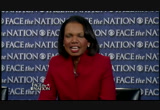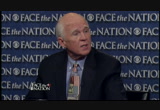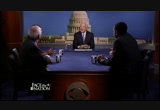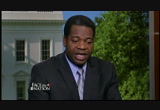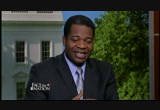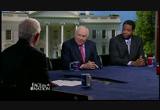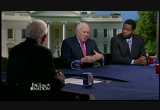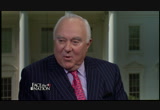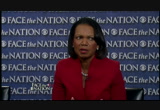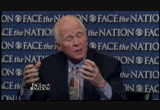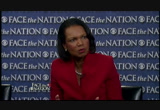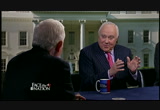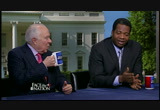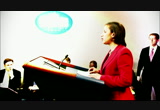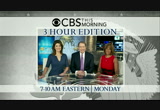tv Face the Nation CBS January 20, 2013 8:30am-9:30am PST
8:30 am
race. and james peterson of lehigh university. we'll round it out with the newest brother act in politics, san antonio mayor julian castro and his air dentical twin, joaquin castro, just elected to congress. that's a big group but there's a lot to talk about on "face the nation." captioning sponsored by cbs from cbs news in washington, "face the nation" with bob schieffer. >> and good morning again. we welcome to the broadcast david plouffe architect of the president's election in 2008, again last year a key adviser in the administration throughout. let me ask you first about the situation in algeria where this awful terrorist attack took place. we know that there were seven americans at that compound, and the reports are one is dead. do you have any more information on any of the others? >> i don't this morning bob.
8:31 am
obviously, if and when we have additional information, the state department will release that >> and what about this whole state of terrorism now? have we defeated al qaeda, as some in the administration were talking about earlier? >> well, we have i think decimated a lot of al qaeda's top leadership particularly in the afghanistan-pakistan region. but i think what this shows is, countries around the world share a common threat. it's why we work so closely with our counter-terrorism partners, sharing information and expertise and technology. but it's going to take a global response to this. and it shows whether it's in north africa, yemen you know, there are real threats out there from terrorism and we need to stay vigilant and we'll work with our allies and partners as close as we can >> what do you know about what the algerian government did trying to end this? they killed a lot of people. was this done right? >> first of all, i think the focus-- all of the blame here needs to be on the terrorists, obviously, who commitmented this
8:32 am
act, to use innocent civilians in their twisted aims, obviously, is a terrible thing. we're, obviously going to be working closely with the algerian government in the days ahead to have a full understanding of what happened. but i think the focus needs to be here on the terrorists who committed this atrocity and understand there are threats around the world and we need to continue to be vigilant and continue to partner with our counter-terrorism allies to make sure we are disrupting these networks wherever they are >> i was thinking back about the country. it is deeply divided certainly as divided as it was at the end of jimmy carterrary term, maybe as divided as it is all the way back to 1968, when the country was torn apart by the vietnam war. what are your priorities as you go into this new term? >> well, the first priority, bob, is obviously to continue to grow the economy focus on the middle class and getting people in the middle class. that's the core mission of the country.
8:33 am
we've, obviously, are beginning to recover from the recession but we have a lot more work to do. but if you look at some-- yes we have some political divisions in this country. there's vast support out there for balanced deficit reduction investments in education and manufacturing, immigration reform, gun safety. so on the issues the president intends to really push and focus on, there's massive support in the country even among republicans. let's not lose sight of that, and that's why we're going to do a better job in the second term-- while we're going to do all we can to work with congress and negotiate, to also make sure the american people are connected to what's going on here. i think to really get the kind of change here in washington the american people are going to demand it. but there is really, i think consensus around eye lot of the issues around the country >> what about the idea the republicans have said they will go along with the three-month extension on the debt ceiling increase? are you going to be-- does that help? >> well, it's helpful that they
8:34 am
have now dropped their demand, that the only way they're going to pay the country's billes, they themselves racked up, would be to extract some concessions. we've got to never again have this threat to the global economy and our economy because congress may not pay its bills. now, three months is no way to run an economy or railroad or anything else so that's not ideal. so i think it's a significant moment that the republican party now has moved off their position that the only way they're going to pay their bills is if they ge the correct kind of concessions. now, where does that leave us? i think we would be better served to go back to regular order in congress so we're notica reaping crisis to crisis; congress ought to work together and come up with a long-term fiscal plan >> but you see this as a good sign? >> i think they're no longer saying the only way we pay our bills is to have huge cuts in things like medicare. that's positive. listen you see our economy-- good housing numbers this past week good construction numbers. i think that our economy is
8:35 am
poised to really grow, and we can't have washington be the hindrance to that. washington ought to be a help, not a hindrance >> can you get a gun bill through congress? >> we think we can. it's going to be very, very hard. obviously it's a tough issue as eye lot are. but i think if you look at the american people on things like assault weapones, high-capacity ammunition clips universal background checks, school safety mental health, huge consensus on these issues. so we're going to have to spend a lot of time on it. i think post-newtown things have changed. you see members of both parties thinking about this differently. and at the very least i think the american people are going to want us to have debate on these. >> all right, david plouffe, we want to thank you for coming by this morning. >> thank you >> best of luck. >> thank you sir >> and joining us now. everybody knows condoleezza rice was president bush's secretary of state but highly pleased to announce she has a new job. as of today she's joining cbs
8:36 am
news as a contributor. we're happy to have you making your first appearance on "face the nation." also, bob woodward, who needs no introduction. he has been in washington about as long as i have. plus two former white house staffers, peggy noonan, now with the "wall street journal." he wrote speeches for ronalding a awas a member, also helped george it's first george bush on some of his things. and dee dee myers now with "vanity fair," but press secretary to bill which the. dr. rice, let me just start. you were there for both of george bush's inauguration. what's the difference between the first one and the second one? >> frankly the first one is a lot more exciting than the second one. by the second one i thought i need to get to work. it's not really let-down, but you are in the middle of your agenda now. and in foreign policy, very often, the actions you have taken, the consequences are now clear whether good or bad. and you either have to make a
8:37 am
corrective course for some of the bad consequences or try to solidify some of the gains that you've made. and because you really don't have four years now. it will start to slip away very quickly. you've got to set some priorities, because the president's time, the secretary of state's time, secretary of defense's time is pretty limited. you better know what you want to achieve in in in three years or so >> you told me earlier this morning something i had never known. upper the national security adviser, one of the president's closest aides during the first term. then you were nominated to be secretary of state, and you told me you had to go through a full background check. >> that's right. i remember thinking-- they were going out and talking to my neighbors again. and i remember thinking didn't we just do this four years ago? you know what i've been doing for the last four years. maybe it's a little bit of a sense of the turf wars in washington between the white house and state department but it was done all over again >> that's just amazing to me. bob, you have watched a few of
8:38 am
these inaugurations. you heard david plouffe say this morning he thinks there's massive support for deficit reduction in the country and massive support for this and that. i'm not sure how massive the support is. it seems to me everybody wants to do something but nobody wants to make-- neither side is ready to make compromises here. >> the simple but obvious truth is that governing is a collaboration between the white house and the congress, and let's face it, it's a collaboration that is not working. it is broken. and the president has not found a way to kind of close the deal with the leaders in the republican party and quite frankly with his own party. i remember catherine graham, the publisher of the "washington post," used to always say "it's hard to not like someone who says they like you." you talk to senators and congress mep as you know, and they feel barack obama doesn't like them or is at least
8:39 am
indifferent to them. and so you have all of these conflicts in negotiations, and they end-- look, the president has the upper hand now and will for some time, but you know-- condi rice knows so well-- any negotiation you need to leave the opponent with their dignity. and their-- and the president's going out aed sticking his finger in their eye. >> well, you know, dee dee it even goes beyond that, what bob says that republicans feel like the president doesn't like them. you hear some people say he-- he really doesn't like the whole process. he didn't like kind of getting his hands dirty with negotiations and stuff. he likes to look at it in a more abstract way. is that true? >> well, it certainly-- you know he's a politician who doesn't love politics. it's not sure he likes the art of politics and that's a
8:40 am
problem >> how you can be a good politician if you don't like politics? >> i think it's created challenges for him. he hasn't built relationships. and i think bob made a great and essential point in any negotiation you have to find the best win-win proposition that you can. you have too let the other guy leave the table saying they got something for their side, because they're giving up-- they're going to give up something big if it's going to be an important deal. i think that this white house has not done that as successfully as they need to. and i think-- otherwise you end up with versailles. you solve the first world war with a treaty that sows the seeds of the second one. i was talking to newt gingrich about what made bill clinton a great negotiator. he listened to find common ground. this is from the speaker of the house who worked to impeach the president. >> what's missing here, peggy? sometimes i think man nobody knows how to play the game any
8:41 am
more to paraphrase casey stengel when he was managing the mets. >> it's true on the hill, speakers and such don't quite control their conferences and their caucuses as they have, but the most from interesting thing that i think-- that has been true of the past few weeks since the president was re-elected, is he's playing it in a way different from previous presidents. previous presidents get a win whether it's close or not and then they try to sort of put their arms about everybody and summon them in. we are essentially a if i felt-50 country still. so you would think the president would have spent the past few weeks going forward saying let's all be together. instead he has been very sharply, definitively "us guys versus you guys" by going at the republicans on hill, by speaking in a way that is very sour about why republicans take the stands
8:42 am
they take. he implicitly is speaking about republicans in a country who are half the country. i think that's a new way to play it a tough and dicey way to play it. and it's going to be interesting to see how it works its way through in the inaugural. >> it may not serve his purposes. i mean-- >> i don't know. >> his gun legislation which makes an awful lot of sense quite frankly and i think david plouffe is right matiority in the country want something. and the president goes out and attacks the gun lobby. -- by name. there is a gun lobby in this country. let's face it. but when you were trying to work something out with the moderate centrists who are members of the n.r.a.-- and there are in fact lots of them-- they don't want to be called "the gun lobby." >> what's your take on that? >> i think there's also a non-washington piece to this. obviously, relations with
8:43 am
congress on one side of the aisle are pretty poisoned right now. but also out in the i didn't the american people don't want to see this divisiveness. they want to see the president say i won the election, and now here's where we're going but we're going together. i recognize that we have differences that may be even deep, but first and foremost, we're americans. if you take something like immigration, for instance, i think this is something that could actually unite us again as a country because americans know that's who we are as a people. we're a country of immigrants. we've really benefitted tremendously from being able to tap human potential from all over the world. but you can't do it from the point of view of "i'm going to put this down and then you take it or leave it" because there are some deep divisive-- divisive issues within the immigration debate that are going to have to be smooth over. so the american people-- i live out in california. i don't live here in washington. and i will tell you that out in the country there's a sense that washington is divided and that's not a good thing for america.
8:44 am
>> let me just take a break here. we'll talk about this. i sure want to get back to talking about guns a little bit. but we'll take a break here for one minute. we're sitting on a bunch of shale gas. there's natural gas under my town. it's a game changer. ♪ ♪ it means cleaner, cheaper american-made energy. but we've got to be careful how we get it. design the wells to be safe. thousands of jobs. use the most advanced technology to protect our water. billions in the economy. at chevron, if we can't do it right, we won't do it at all. we've got to think long term. we've got to think long term. ♪ ♪ vestors like youe : 1-800-345-25501-800-345-2550
8:45 am
50r schwab bank haat's in your cor noe with schwab bank can >> and we're back now with our panel. no one they know of thinks it's a good thing that those children were slaughtured up in connecticut, but there's a great deal of disagreement on how do you stop that from happening again. dee dee what do you think has the best chance of passing? what if anything do you think is going to happen? >> well, summer there is broad consensus in the country for enhanced background checks, eliminating loopholes for gun shows and other private transactions for guns. again, 80% even among gun owners. also large magazine.
8:46 am
again, broad consensus in the country that those should be banned. i think you will see a bill including those provisions that will have a good chance of passing. the assault weapons ban is much more difficult. we went through that in 1993, and it's very hard to even define an assault weapon and it's very easy for manufacturers to work around whatever that definition is. that's tough. what the president and the administration have to do and democrats in congress who want to see this passed is reach out to moderates in the country who believe that in reasonable restriction, who may own guns, or they come from districts with large gun-owning populations. you cannot alienate people or even members of the n.r.a. a post in the "new york times" and abc/"washington post" poll, the n.r.a. is a pretty popular institution. it's much more popular than, say, hollywood. >> or the press. >> or the press. and certainly way more popular -- >> you don't have to be too popular. >> and so i do think it's important to focus on those place where's there is consensus and not to vilify people. >> peggy the fiscal cliff we
8:47 am
got passed that basically by just kicking most of it down the road. now the republicans say they want to try to hold this hostage to raising the debt limit. you heard david plouffe say he-- he almost said that's a good sign but at least it's better than it was. is anything going to happen on that? >> i think it's very hopeful what happened in the last few days when the republicans came forward and said, "look we're not going to fight this one out now. we will extend for a short time." it's hard to admit when you care a lot that you are not calling the shots. but if you are a party that controls only one part of one-third of government, only the house of representatives you are not calling the shots. you cannot govern from there. the people just had an election. they chose mr. obama. he's going to get what he wants in the short term. long term, there are many things you can do to push the ball forward in the way that you
8:48 am
think is most helpful. can i go back to guns for just a second? one of the things that i think was frustrating for those not on mr. obama's side in general over the whole guns thing is that in his remarks he looked at everybody and he challenged those congressmen from mixed districts who have a lot of gun rights supporters. he challenged them and said try to be brave do the right thing. that's a great thing to say. but he himself the president could have been brave and done the right thing by including in his big view of guns hollywood our culture our media all of the people who make entertainment that very arguably are hurting kids in america but who are the president's supporters. so he didn't want to do the right thing there and it's frustrating. when you're president you ought to be thinking big and even when you've just been re-elected
8:49 am
and you're going to be inaugurated, go for it. be brave. have a sister souljah moment. go to those who support you and say you're doing some things wrong. i really wish he had >> let me ask dr. rice, what do you think the big challenges are going to be on foreign policy. >> interesting, i think the first challenge is do something about the american economy. i do think our international leadership has suffered both from the perception that america can't get its act together on entitlements and the deficit and so forth and from the reality that without a stronger economy there are just some things we cannot do. i was thinking about we're coming up pretty soon on the anniversary of pepfar, the president's emergency plan for aids relief. it's something that on a bipartisan basis made america overwhelmingly popular because we were dealing with the pandemic of aids. i don't know that under today's budget conditions you could suggest that you spend initially $15 billion and then $50 billion
8:50 am
on something like that. but that's the soul of our country in foreign policy. so i would say first get the economy humming again deal with the budget. and then i'm afraid that like every president for a number of years, the middle east has come back to haupt us. and it's going to haunt us for a long time. i don't care how energy independent we become because of the north american energy platform, which we ought to develop, the middle east is still the most malignant part of the world and that malignancy is spreading into other parts of the world including into north africa as we've seen >> bob woodward, you are kind of an expert on second terms. what are the things the president ought to be on guard against? >> just about everything. you talk about malignancy in the world. and i think there's a real problem in governing here as we were talking about. but also, if you can kind of step back, which is the hardest thing to do, the first obama term was not bad.
8:51 am
lots of things-- i mean, the mess he inherited the financial crisis we are now steaming out of and if you talk to c.e.o.s and businesspeople, that we're kind of on the edge of a real economic rebirth perhaps if they can fix the governing issues here. and in the world i'm kind of struck-- i mean, dr. rice, secretary rice is exactly right. there's a lot of problems out there, but obama's got a series of nominees very experienced. >> all right well, thank you all for a very enlightening discussion. we'll, back in a moment. ♪ ♪ [ male announcer ] how could a luminous protein in jellyfish, impact life expecta
8:52 am
cbs news coverage of the swearing-in of barack obama. from washington, here is scott pelley. >> pelley: good morning. at the top of the hour when the clock strikes noon, barack obama's first term as president will come to an end and his second term will begin. in just a few minutes he'll be sworn in by chief justice john roberts in the blue room of the white house. because this is the date that the constitution sets for presidential terms to begin and this time it's sunday, the celebrations have been put off until tomorrow. that's a tradition that dates back to james monroe in 1821. his second term began on a sunday, but out of respect for the christian sabbath he put off his inauguration. in his case there was no private swearing-in on sunday so for 24 hours the nation was without a duly sworn president. but that won't do in 2013 so mr. obama will be sworn in today and then earlier at the capital. earlier today vice president biden was sworn in by supreme court justice seasonnia
8:53 am
sotomayor at his official residence. then he and the president paid tribute to america's fallen heroes placing a wreath at the tomb of the unknowns at arlington national cemetery. major garrett who covers the president for us is at the white house this morning. major, what can we expect? >> scott, 35 words. outlined in the constitution, article 2, section 1, clause a. without those 35 words administered by the chief justice president obama's second term cannot officially and therefore constitutionally begin. the president will take the oath on the robinson family bible. one that dates back to 1958 and it stays most of the time in chicago. he'll be joined by the first lady and his daughters and marion robinson the first lady's mother. and this is the 7th time, scott, on a sunday the president has taken the oath of office. the last time ronald reagan in 1985. scott. >> pelley: the robinson family, of course is the family of michelle obama. her grandmother originally owned this bible. this is the blue room. there is the chief justice of
8:54 am
the united states. and we expect to see the president very shortly. >> please raise your right hand and repeat after me. i barack obama hussein obama do solemnly swear. >> that i will faithfully execute. >> that i will faithfully execute. >> the office of president of the united states. >> the office of president of the united states. >> and will to the best of my ability. >> and will to the best of my ability. >> preserve, protect and defend. the constitution of the united states. >> the correspondence steution of the united states. >> so help you god. me god. congratulations, mr. president. >> thank you mr. chief justice. thank you so much. ( applause ) thank you, sir. >> i did it. all right.
8:55 am
thank you everybody. >> pelley: just as simple as that the president with the first family in the blue room with the chief justice of the united states. a smoother recitation of the presidential oath than in 2009 when the chief justice stumbled over a few words and the oath had to be taken again later at the white house that same day. just to be safe. we have bob scheiffer with us. the anchor of face the nation. and our chief washington correspondent who has seen quite a few swearings-in of the president. bob, how will his second term be different than the first? >> schieffer: well, second terms are always different. sometimes they're the time that presidents and their staff get into trouble. you know the second inauguration someone said it's like... it's not nearly as exciting as the first one because first time around everybody is excited. there's a fairy tale setting. second time around if it's a new person you know, coming back
8:56 am
it's either like a second marriage or maybe just a renewal of vows. i mean reality has set in. people know more about it. nothing is quite as easy as it seems. but the country is deeply divided, scott. there are some major problems number one getting the fiscal condition of this country back in order. and that will probably be the first order of business. this whole business of guns and what do we do about that? there are going to be some really serious things to be discussed. this hostage crisis that we saw unfold in algeria tells us that the threat of terrorism is not... has not been resolved. this is going to be a very, very busy four years for this president. and where it goes as we always say, we'll find out as it goes along. but this is going to be an
8:57 am
interesting period of time. >> pelley: bob, thank you very much. we're also joined by doug brinkley who is a professor of presidential history. doug, the swearing-in today is required by law. under the 20th amendment it has to be by noon on the 20th of january. but the parties and the public celebration are going to be tomorrow. how many times has that happened? >> well, it doesn't happen too often. bup it's become part of our tradition now that you do a swearing-in. ronald reagan in 1985, for example, had to do just this, was sworn in but sundays are football days. and the reagan ended up actually tossing the coin for the super bowl later that afternoon. so today you have football going on. i'm sure the president has the opportunity now to go home watch the game and relax. it doesn't have to move in. he's already in washington. his work begins. but i found this simplicity very moving because often in american history we have swearings-in
8:58 am
that are tragedies. i mean you have john f. kennedy being killed in dallas and lyndon johnson quickly being sworn in. or when warren harding tied and coolidge sworn in. there are many examples of that. the simplicity of this, the fact that the weather is good. this is important that we remind ourselves today that we are all americans. we're not democrats. we're not republicans. we're not independents. this is our president for a second term >> pelley: there's so many rancor in an election immediately preceding an inauguration and so much rancor as policy gets to be made. inauguration day is a 24-hour period when that all seems to be put away >> one hopes so. we live in these you know, just terrible partisan times right now. but let's put the bickering aside. i think the fun of tomorrow is going to be guessing what's the president going to say? it's going to be 50 years this year of the "i have a dream speech" of martin luther king. 150 years of the emancipation proclamation. they have this historic
8:59 am
african-american president. once again he said barack hussein obama today. using his middle name like he did the first time around. you just have to be touched by it. the story of barack obama is like, you know, booker t. washington or martin luther king. they are stories that constantly resonate. there's a lot of cynicism towards this president, but we need to also just be so pleased that he's doing such a great professional job for our country. >> pelley: doug, thank you very much. let's switch back over to the white house back to major garrett on the lawn there. so we are entering the first few minutes of the second term, major. >> indeed we are. i think it was the buoyancy of the presidency that struck me scott. i will tell you talking to very senior advisors here at the white house about what is different. this is a second term. for the president when he ran in 2008 and won and took the inaugural oath in 2009 he believed it was about him but it was also about changing from the bush era. he believed frr strongly that winning a second term was essential not only for the mandate he wanted to carry out
9:00 am
his plans for the country but also essential for him to prove to the country that he was not a fluke. he was not a historical anomaly and that an african-american president could win once and win again. i think you saw some of that in the buoyancy of the very brief ceremony. i suspect we'll see it again displayed tomorrow when the president delivers his inaugural address. i'm told by senior advisors, scott, he's still putting the finishing touches on that second inaugural address not quite done. work began on that when he came back to washington during the fiscal cliff drama. he was in hawaii and came back and put his time not trying to resolve but ultimately solving the fiscal cliff. he's still working on the address at this late hour. >> pelley: that second inaugural address will be delivered at the capital right behind me. that's the west front that you see behind our cbs news studio here in washington. the west front of the capital has been completely transformed for tomorrow's pomp and circumstance.
9:01 am
we have our capital correspondent nancy cordes there this morning. nancy, what can we expect to see tomorrow? >> well, scott, we'll see a repeat of what we saw today just with, as you said, a lot more pomp and circumstance. the president will be sworn in once again by the chief justice john roberts. just behind me, behind those glass panels and that podium, and they'll be using not one bible as they did today but two bibles. first a bible that belonged to president lincoln which the president used four years ago when he was sworn in. but he'll also be bringing a bible that belonged to the rev. martin luther king jr that's fitting because the ceremony takes place on martin luther king jr.'s day. the president will be surrounded by his family and his friends. some of the best seats in the house will go to invited guests of the president. the supreme court justices, the joint chiefs of staff. congressional leaders. and i'll tell you who else has a great seat tomorrow, scott. that's the brooklyn tabernacle choir. you'll see them up in those bleachers just above where the
9:02 am
swearing-in is taking place. they're up there right now because they rehearsed earlier today. now they're just taking in the great view watching james taylor rehearse who was out here just a few minutes ago and sounded wonderful. he's singing "america the beautiful." scott >> pelley: nancy, thank you very much. as we prepare to say good-bye to you this morning let's have one more look at the swearing-in of the president in the blue room of the white house that took place just moments before noon today. the president sworn in by the chief justice of the united states john roberts, jr this is one of the oval rooms in the white house. it is usually used for receptions. and the only wedding of a president that ever occurred in the history of the united states in the white house grover cleveland was wedded in the blue room of the white house where we just saw the president sworn in. so president obama has been sworn in for a second term. here's what's coming up on inauguration day tomorrow.
9:03 am
the president and mrs. obama attend services at st. john's episcopal church across from the white house at 8:45 in the morning. at 10:45 they will leave the white house for the capitol. the inaugural ceremonies there begin at 11:0 and include the ceremonial swearing-in of vice president biden and then at 11:55 president obama will be sworn in again by chief justice roberts. at noon, he will deliver his inaugural address. and that is followed by lunch at the capital. then around 2:30 the president will lead a procession back to the white house where he and the first lady will watch the inaugural parade along pennsylvania avenue. if you can't be here, the best place to watch is right where you are. our cbs news live coverage begins tomorrow at 7:00 a.m. eastern time with a special three-hour edition of cbs this morning with charlie rose, norah o'donnell and gail king. at 10:00 a.m. eastern time bob scheiffer and i will continue
9:04 am
the coverage. we'll have a team of cbs news correspondents at key locations all over the city. and plenty of interesting guests stopping by the anchor booth here to talk to us. so until tomorrow i'm scott pelley. cbs news in washington. good day. ♪ ♪ [ male announcer ] how do you turn an entrepreneur's dream... ♪ ♪ into a scooter that talks to the cloud? ♪ ♪ or turn 30-million artifacts... ♪ ♪ into a high-tech masterpiece? ♪ ♪ whatever your business challenge, dell has the technology and services to help you solve it. aig? we said we were going to turn
9:05 am
it around, and we did. woman: we're helping joplin, missouri, come back from a devastating tornado. man: and now we're helping the east coast recover from hurricane sandy. we're a leading global insurance company, based right here in america. we've repaid every dollar america lent us. everything plus a profit of more than $22 billion. for the american people. thank you, america. helping people recover and rebuild -- that's what we do. now let's bring on tomorrow. >> schieffer: welcome back to face the nation. this is not only inauguration weekend but monday is the birthday of martin luther king jr so we're going to talk about that too. today on face the nation. and joining us secretary rice has agreed to stay around. pulitzer prize winning author taylor branch whose new book is called the king years. historic moments in the civil rights movement. also with us the top aide to
9:06 am
lyndon johnson back when he passed all that civil rights legislation. james peterson from lehigh university. i should also note that mr. califono is a member of the cbs corporate board. the only other member of the board to appear on face the nation i believe is walter cronkite. >> good company schieffer: after he left the anchor chair. let me start with you joe. you know, as we look out on washington it's divided as it is, and these problems that are dividing us. it occurs to me over and over the nation is is not nearly as divided as it was over segregation and it's not nearly as difficult, in my mind, to solve some of these problems as it was for lyndon johnson to get those civil rights bills through the senate. how did he do it? >> i mean, i think one i agree with you incidentally. i think that the tension the fact that the southern democrats
9:07 am
controlled the senate and they control the committees in the house not only on civil rights but on virtually everything we were trying to do in the great society on spending, on those bills, i think one he knew those guys very, very well. he knew every person. he knew what their price was. and he was willing to do what he had to do. number two. he was willing to give other people credit. i mean you just go back and think about particularly the voting rights act. i mean he really kind of let... said, you know, let dirkson work on it >> schieffer: he was the republican leader >> the republican leader. let him have the bill. let him to the bill. and talking about martin luther king, when the voting rights act, when he signed the voting rights act think about the fact that everyone said he'll give the pen to martin luther king. he didn't. he gave the pen to dirkson. he said, you know, without everett dirkson, this would be a
9:08 am
bill not a law. he knew how to do that. and he also knew that he was willing to make incredible, you know sort of what the hell is the presidency for? when his staff in 1964 before his first state of the union the entire staff said don't go for the civil rights bill of '64 prohibiting employment discrimination and public accommodations. it's a presidential election year. he said what the hell is the presidency for? we'll go for it. he went for it. he got it. >> schieffer: condoleezza rice what did that mean to you? >> it meant everything. i was a little girl in birmingham alabama the most segregated big city in america. i remember quite well the day that president kennedy was assassinated. when we learned that he had died my teacher, we were in school, my teacher was outside and i heard her say "what are we going to do now? the president is dead and
9:09 am
there's a southerner in the white house?" there was a sense we would not get the great civil rights legislation but i have just tremendous respect and a deep admiration for lyndon johnson. i was telling some people at the white house when the 40th anniversary came up of the so-called public accommodations act that it meant for a little girl that we could go to a restaurant for the first time as a family. it meant that for the first time we could stay in a decent hotel driving from birmingham to denver colorado. and in these little ways it began to mean that we had begun only begun to overcome some of the birth defects of the united states and we're being accepted as full citizens. from the eyes of an eight-year-old in birmingham, alabama, it wasn't a bill. it wasn't a law. it was a change in what it meant to be an american. >> schieffer: i'm not sure, taylor branch, and i'm sure one hopes that eventually it would have happened. but i'm not sure jack kennedy could have passed that
9:10 am
legislation. >> i doubt that he could. he introduced the act because of what happened in birmingham. dr. rice's hometown. it was the very tipping point in 1963. but it took, i think it did take perhaps president kennedy's death which really shocked the country about the cost of hatred and inspiration to get past it. but the year 1963 was a great turning point. in this month of epic anniversaries for the broader american memory we're 150 years from the emancipation proclamation but only 50 years ago this month from george wallace becoming governor of alabama pledging segregation today, segregation tomorrow, segregation forever. segregation was embedded in the constitutions of the southern states and many of the customs and institutions nationwide. he couldn't hold it. and it set loose a lot of things that really in proper
9:11 am
perspective that dr. rice just spoke personally. we should all take great comfort and hope from all that was accomplished. but george wallace who couldn't hold segregation also invented -- he was an ingenius politician -- and he invented a lot of the phrases in politics that are chillingly contemporary about how... >> schieffer: i'll tell you how short a time ago it was. i never attended a school that any black person had attended. growing up in fort worth texas. i never shook hands... >> there were no females schieffer: i never shook hands with a black person until i was a second lieutenant in the united states air force. i can remember it. not because i didn't want to but they lived on one side of town and i lived on the other side of town. we just never came together >> i did not have a white classmate until we moved to denver when i was in 10th grade. despite the fact that the schools were supposed to be integrated in alabama after
9:12 am
1965. it would be several years more. but the good news is that if you go to birmingham today it is an integrated city. so for me it means that the human spirit is pretty irrepress i believe. >> schieffer: what did it mean to you? >> i'm a little bit younger than the folk here at the table. to place it in historical context with the very authentic anecdotes gives me pause to be honest with you because as someone who has been an educator for a long time we still wrestle with issues of diversity. we need more women and stewed eptsz of color in our institutions. i'm fighting those fights. it's really powerful to understand the historical context for those kinds of movements and for sort of our commitment to these things. it makes me feel as if even though things seem to be more stratified back in history there were sort of more authentic ideologies that we were wrestling with. you know when i think about politics now and the gridlock we have now there's so much money in it. it seems so inauthentic to me
9:13 am
sometimes. having the history lesson i think is shg that folk on the hill need as well as folk in the classroom >> schieffer: as a black person as an african-american do you think... what do you think is more important that barack obama was elected or that he was re-elected? >> wow. that's interesting. i think that we need to think of it in terms of symbolic terms and also in terms of policy terms. the re-election from a policy perspective i think is more important. the initial election from a symbolic perspective i think was more important. i think some people diminish the symbolism for african-americans and for america and for the world. i don't intend to do that. i think folk are... don't always understand the ways in which black people and the democratic party and those on the left are sometimes just as disenchanted with the president as those on the right. from the last segment everyone says he doesn't reach across the aisle. he doesn't compromise. he nominated chuck hagel. there's so many different ways of looking at it. if you think about the symbolic
9:14 am
nature of the first black president it's powerful for some people. we can't ignore the policy pieces as well. there are a lot of people who want this president to do certain things. we want gun control and comprehensive immigration reform. without those things being in place in some ways that policy piece of this presidency will be lacking. >> schieffer: what would you advise him to do right now? >> i'll tell you, and i think he has to in some way sit down with boehner, to be honest with you. face to face. essentially he has to say look, i know you've got a hell of a problem. what carrots, what sticks, what can i do to help you get those guys aboard so we can get some kind of intelligent deficit finance here? there's one other thing. can i mention relating to king which i think is really important. when you askd me at first how did he get this done, think about selma. wonderful phone conversation in
9:15 am
january of 1965. lyndon johnson talking to martin luther king. he said, "martin i want you to find the worst place in the south where there are the fewest negroes" -- that was the term then -- "that are eligible to vote and get your people down there and get people down there and get leaders down there and get it on television and get it on radio and get the american people to see it. then i'll shove this bill through this congress. i'll get voting rights because and treat it as the same for everybody. it's not a negro thing. we want the guy on the track the guy in chicago the guy in sub urban white to say, wait a minute, it's not fair. if you get that publicity we'll see that. "so it was reaching out you know getting guys to go to work for him. you know, we didn't have an organization like the one obama... >> schieffer: how big was the white house staff when you were
9:16 am
there? >> it was about 25 people. think about it. >> not many more. there are ohm about five senior aides. think about it. i had the first domestic policy operation. i had four people working for me. 267 today in domestic policy. actually it's way too big. puts the president deeply into this thing. the last thing immigration reform. you look at this presidential election. you know right after he passes the voting rights act breaking the filibuster, he said we have to get immigration reform. you had to be northern european and blonde and blue-eyed in order to get in this country. there were quotas on italians, quotas in south america and mexico and asia and africa. and he said we do it right away. we'll get it done. he got immigration reform done.
9:17 am
all you have to do, to me it's the most important factor in obama's re-election. the voting rights act which johnson saw as the most important law in his administration. look at the electorate. you indian-americans, asian-americans, mexican-americans, african-americans saying we're voting for our candidate. this is our country. >> i think there's one other point though about the civil rights legacy. because we have to ask ourselves what is the new civil rights issue of the day? i think it's education because if you look at the effect now of race, for most, for many race is no longer really dispositive. but boy if you are poor and black and trapped in a failing neighborhood school some place your prospects are really dim. so i think if we update the civil rights agenda, we've got to think about how to educate the kids with... >> and people of color are overrepresented in those poorer
9:18 am
populations so it's the intersection of both race and class but education is the civil rights issue of the era. it's the only way for us to... ta vis was talking about poverty earlier on in cbs. one of the most direct ways to confront that is making a much more robust public education system. >> what would i would say on that for the president, i don't know too much about the relations with government but i do think that there are signs in the broad cultural memory, we have aggressively misremembered the civil war and the civil rights era by taking counsel of resentments and fears. in true proportion, there's a lot of hope there in the immigration bill and in the civil rights era. the things that we did to knit things together across the lines that divide us. we can do it again if we get a proper perspective. we shouldn't be so curdled against the possibilities of politics. we can't be because we have too many pressing problems like immigration. that's why i hope that a proper history can help the president and can help frankly the
9:19 am
republican party learn again how to respond to an aroused citizenry to do things for the american people >> schieffer: has the republican party got to diversify in some way? >> the republican party certainly has to stop turning off large segments of the population. i've said, you know, it's not a strategy to keep hoping that parts of the population don't turn out. you've got to simply broaden. i think immigration is the big issue frankly. we sent some pretty bad signals around immigration. george w. bush, john mccain, jon kyl and ted kennedy had an immigration bill in 2007. it failed. i felt at that moment that that was the real missed opportunity. we have to get comprehensive immigration reform back on the agenda. there are some republicans like marco rubio and others who are speaking out about this because the republican party has to demonstrate that it has broad appeal. i think on some of the core values the notion of fiscal
9:20 am
responsibility, a strong national defense individual responsibility, yes, federalism, that there are things that the states ought to do that the federal government can't do. i think those are widely popular among the american people. but if you send messages that there are whole segments of the population that are not welcome not only is it bad politics but it's bad policy because without immigration, robust immigration we have the same demographics of japan and europe. so the united states has or the republican party has both a political and a policy problem. >> the president one other thing the president has to do i think -- and your prior segment segment -- you know, he can't keep sticking his finger in the eyes of his opponents. lyndon johnson had a wonderful line, i remember dean rusk at one point said de gaulle is driving us crazy. you can tell de gaulle to go to hell. lyndon johnson turned to rusk and said rusk you have to learn
9:21 am
something about policy. you never tell somebody in politics to go to hell unless you can send them there. and obama can't send those republicans to hell. but he can i think,... he can get some cooperation from them that he hasn't gotten in the past. and also he's got to reach out to the democrats. bob woodward made an important point. i can confirm that. there's a real sense on the hill that he's not... he doesn't really... not that he doesn't like us. he doesn't respect us. he doesn't think we're you know, like him. he thinks our fingers are dirty or whatever. that's very important for him to get over that. >> schieffer: dr. peterson. i'll let you have the last word >> i disagree that he stuck his finger in the eye of the n.r.a. or the gun lobby. we're getting so far away... from the last segment people were talking about how he handled the n.r.a. without
9:22 am
enough nuance. if you are around people who have been around these kinds of tragedies, i think you can understand that it's okay to have the conversation about gun ownership. but we need to be much more aggressive about how we're addressing safety for people in our society. so agreed. maybe the president is not the greatest politician. but it's interesting to watch because he gets so much flak from the left. so much flak from the right. you know, he's got to be doing something right somewhere along the line. >> it's about being president. schieffer: i can let this go on for the rest of the morning but we have to move on. thank you all so much. we'll be right back.
9:24 am
>> schieffer: all right. that is us for today. be sure to join us tomorrow for our cbs news coverage of the president's inauguration. charlie rose, norah o'donnell gail king will have an expanded edition of cbs this morning. that starts at 7:00 a.m. eastern time. and then i'll join scott pelley and the rest of the cbs news team for our inauguration special report which starts at 10:00 a.m. eastern.
9:25 am
we'll also have full coverage of all the day's events on the cbs evening news and cbs news dot-com. as for "face the nation," we'll all be right here, same place same time next sunday. hope you'll be here too. and join us tomorrow. see you then. 'cause all our states are great. and now is when the gulf gets even better. the beaches and waters couldn't be more beautiful. take a boat ride or just lay in the sun. enjoy the wildlife and natural beauty. and don't forget our amazing seafood. so come to the gulf, you'll have a great time. especially in alabama. you mean mississippi. that's florida. say louisiana or there's no dessert. brought to you by bp and all of us who call the gulf home.
9:28 am
9:29 am
are you sick and tired of fighting the battle of the belly bulge? hate the muffin top from your favorite jeans? and how many tops and dresses are too tight, too embarrassing to wear because they show every flaw? your bra doesn't help because it creates even more bumps and bulges. shapewear doesn't help... it just moves the problem around and makes it impossible to breathe. and trying to hide it all just creates hot, uncomfortable layers. well, no more! introducing the revolutionary new cami shaper by genie, makers of the incredible genie bra. more than 10 million women worldwide know the genie brand means seamless comfort, lift and support. well, now genie bra designer stella riches gives you that famous comfort and support for the very first time in an incredible new cami shaper. you get the same lift and support of the genie bra the super comfort of a camisole and slimming benefits of shapewear all in one. >> now you can have the beautiful, sleek body, sexy and
564 Views
2 Favorites
IN COLLECTIONS
KPIX (CBS) Television Archive
Television Archive  Television Archive News Search Service
Television Archive News Search Service  The Chin Grimes TV News Archive
The Chin Grimes TV News Archive 
Uploaded by TV Archive on

 Live Music Archive
Live Music Archive Librivox Free Audio
Librivox Free Audio Metropolitan Museum
Metropolitan Museum Cleveland Museum of Art
Cleveland Museum of Art Internet Arcade
Internet Arcade Console Living Room
Console Living Room Books to Borrow
Books to Borrow Open Library
Open Library TV News
TV News Understanding 9/11
Understanding 9/11
